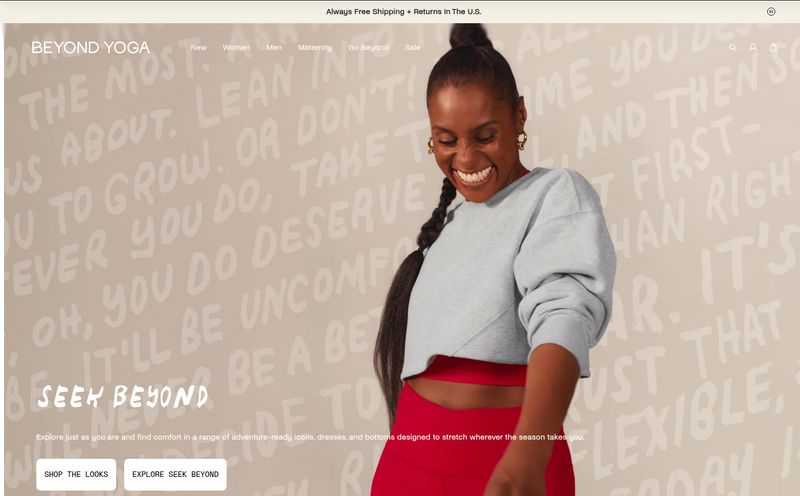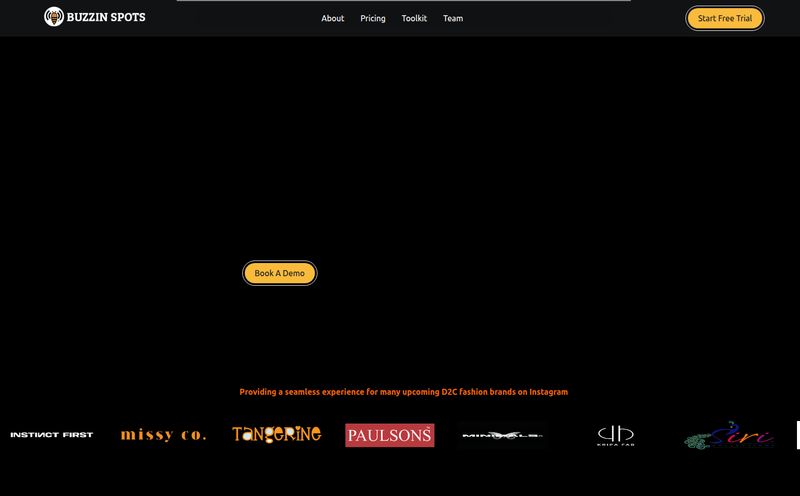We've all been there. You see the perfect pair of jeans online. The model looks amazing, the reviews are glowing. You meticulously check the size chart, measure yourself three times, and consult the celestial alignment of the planets before clicking “Add to Cart.” And when the package arrives? Disaster. The jeans either cut off your circulation or could double as a two-person tent.
The cycle is vicious: the excitement, the disappointment, the tedious trip to the post office for the return. It’s a modern-day tragedy. For years, I’ve felt that online clothes shopping is basically a gamble. You're betting your money and your time that a brand's idea of 'Medium' is the same as yours. Spolier alert: it rarely is.
So when I heard about a tool called Vestium AI, my inner SEO-nerd and frustrated online shopper did a little happy dance. An AI platform that promises personalized recommendations and, most importantly, predicts how clothes will actually fit? Sign me up. But is it just another tech gimmick, or is it the digital tailor we’ve all been waiting for?
So, What on Earth is Vestium AI?
At its core, Vestium AI is an AI-powered shopping assistant. Think of it less as a search engine and more as a personal stylist and tailor rolled into one digital package. Instead of you endlessly scrolling through hundreds of items, it analyzes your preferences, style, and (the magic ingredient) your fit data to serve up clothes that you’ll not only like but that will also, theoretically, fit you like a glove.
The whole point is to cut through the noise and the wildly inconsistent sizing charts that plague online retail. It aims to replace the guesswork with data-driven confidence. It's a bold promise, and one that could seriously change how we shop for clothes online.

Visit Vestium AI
How This AI Shopping Assistant Actually Works
While the deep tech behind it involves complex algorithms and machine learning, the concept for the user is wonderfully simple. Vestium AI acts as a bridge between you and the online store. It takes information about you—your measurements, your style preferences, maybe even feedback on past purchases—and uses that data to predict how an item from a supported store will fit your specific body.
It's like having a friend who has tried on everything from that store and can tell you, “Oh, that brand runs small, you’ll definitely need to size up,” or “The cut of that dress will be perfect for you.” Except this friend is an AI that has analyzed thousands of data points to come to that conclusion. It moves beyond generic reviews and gives you a prediction tailored specifically to you.
The Good, The Bad, and The AI-Fitted
No tool is perfect, right? As an SEO professional, I’m naturally skeptical of anything that promises to be a silver bullet. So I had to break down what gets me excited about Vestium AI and where I see potential bumps in the road.
What I'm Genuinely Excited About
First and foremost, the time-saving aspect is massive. The hours I've lost on what I call the “size chart safari” are hours I’ll never get back. The idea of an AI doing that legwork for me is just… chef’s kiss. It simplifies the whole chaotic experience into a curated, personalized list. Beyond that, it's the potential for discovery. The platform could recommend brands or styles I’d never have considered, simply because the AI knows they'd be a great fit for my body type. It’s about more than just convenience; it’s about feeling more confident in your purchasing decisions before you even click 'buy'. It's about finally ending the cycle of returns.
Where It Might Stumble
Let's get real, though. An AI is only as good as the data it's fed. The accuracy of Vestium AI's recommendations will depend entirely on the quality of its analysis and the data available from both the user and the retailers. There's also the question of personal preference. Fit isn't just about measurements; it's about feel. I might prefer a looser fit in my sweaters, while someone with my exact measurements might want something more form-fitting. Can the AI capture that level of nuance? That remains to be seen. And of course, the biggest initial hurdle is its scope. If your favorite indie boutique or go-to online store isn’t supported, the tool's usefulness is obviously limited. Its success will hinge on how many retailers it can partner with.
Is This the Future of How We Buy Clothes?
I think so. Or at least, it’s a huge step in the right direction. The impact of tools like Vestium AI goes beyond our personal convenience. Let's talk about sustainability for a second. The environmental cost of online shopping returns is staggering. A 2021 report highlighted that returns in the U.S. alone created millions of tons of carbon emissions. Every shirt we return because it doesn't fit contributes to that problem.
"By significantly reducing return rates, AI-driven fit technology isn't just improving customer satisfaction; it's actively making e-commerce a more sustainable industry."
If a tool can help us get it right the first time, it means fewer trucks on the road, less packaging waste, and fewer perfectly good clothes ending up in landfills because they're too costly to re-process. That’s a pretty powerful side effect. It shifts the entire online shopping paradigm from a high-waste, trial-and-error model to something smarter and more responsible.
So, What's the Price Tag?
This is the million-dollar question, isn't it? At the time of writing this, Vestium AI hasn't made its pricing public. However, looking at the market for similar tools and browser extensions, I'd bet on a model that's free for the end-user (that's you and me). Typically, these platforms make their money by partnering with the retailers, who pay for the service because it reduces their costly returns and increases customer loyalty. So, fingers crossed, this will be a tool we can add to our shopping arsenal without having to shell out any cash.
Frequently Asked Questions About Vestium AI
I've seen a few questions pop up, so here are some quick answers.
How does Vestium AI know my size and style?
It typically works by having you input your basic measurements, and perhaps answer a questionnaire about your style preferences and how you like your clothes to fit (e.g., loose, snug, regular). The AI then uses this profile to compare against product data from stores.
Is Vestium AI free to use?
While official pricing isn't out, it's very likely that it will be free for shoppers. The business model usually involves charging the retail brands who benefit from lower return rates.
Which online stores does it support?
This is the key variable. The tool will launch with a set of partner stores and will likely expand its list over time. Its utility for you will depend on whether it supports the places you already shop.
Is my personal data safe?
Any reputable platform in this space will take data privacy very seriously. You should always check the privacy policy, but generally, your data is anonymized and used to power the recommendation engine without being tied directly to your public identity.
How is this better than just reading customer reviews?
Reviews are subjective and based on someone else's body type and preference. A review might say "runs large," but what does that mean? Large compared to what? Vestium AI aims to provide an objective prediction based on your specific data, not someone else's opinion.
My Final Verdict on Vestium AI
Look, online shopping for clothes is broken. It's inefficient, frustrating, and incredibly wasteful. While Vestium AI might not be a magical fix for every single problem, it represents the exact kind of innovation the industry desperately needs. It’s a smart, data-driven solution to a very human problem.
Am I hopeful? Absolutely. The promise of getting personalized, accurate fit recommendations could save us time, money, and a whole lot of disappointment. It’s a tool I’ll be keeping a very close eye on. Because if it delivers on even half of its promise, it won’t just be a cool new tool—it’ll be a complete game-changer for how we all shop.



